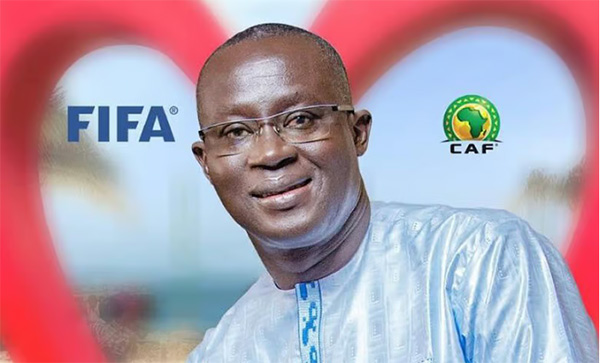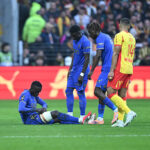Senegal FA chief Augustin Senghor condemns Morocco’s rising dominance in African football

Augustin Senghor has openly criticised what he describes as Morocco’s disproportionate influence over African football, accusing the Confederation of African Football (CAF) of enabling an unbalanced system that marginalises much of the continent.
Speaking candidly on Senegalese broadcaster 2STV, the president of the Senegalese Football Federation expressed concern that an alliance spearheaded by Morocco, Egypt, and Mauritania is tightening its grip on the governance of African football.
Senghor claims this concentration of power does not reflect the broader diversity of the continent, stating bluntly that “CAF has thrown all African federations into the arms of Morocco.”
His comments follow his recent defeat in the FIFA Council elections held on 12 March 2025, where he secured only 13 of the 53 available votes.
The outcome has been widely interpreted as a signal of waning influence for Senghor and his bloc, further highlighting the growing strength of the Morocco-led coalition.
Central to Senghor’s criticism is the role of Moroccan FA president Fouzi Lekjaa, whom he accused of orchestrating a form of regional domination within CAF.
Senghor warned that such dominance undermines African football’s cohesion and threatens to sideline other linguistic and geographical groups that have historically played a key role in the development of the game on the continent.
He also cited specific examples of what he sees as institutional bias, particularly the controversial practice of allowing Morocco to host matches that were initially scheduled to be played at the home venues of other nations without CAF-approved stadiums.
He pointed to Niger’s recent situation as a glaring instance of this policy in action, questioning the fairness and transparency of such decisions.
Senghor extended his criticism to the leadership style of CAF president Patrice Motsepe, suggesting that the organisation’s current structure benefits a small elite group.
“Ten percent of Africa now represents 90 percent of FIFA,” he said, drawing attention to what he believes is a stark imbalance in representation that undermines the democratic foundations of the sport’s governance in Africa.
He urged African political leaders to engage more actively in the affairs of continental football, warning that the current trajectory risks eroding unity and inclusivity within CAF.
Senghor made it clear that he does not intend to align himself with the prevailing political alliances, even at the cost of personal influence or career advancement.
His unusually pointed remarks mark a departure from the more diplomatic tone often adopted by high-level football officials and could signal rising tensions within African football leadership.
Whether Senghor’s words will ignite a broader dialogue on the direction of CAF and FIFA representation remains uncertain, but they have undoubtedly cast a spotlight on the simmering discontent among factions within the game’s governing bodies.
As the landscape of African football continues to evolve, Senghor’s call for fairness and broader inclusion underscores a growing demand for reforms that reflect the full cultural and geographic diversity of the continent.




